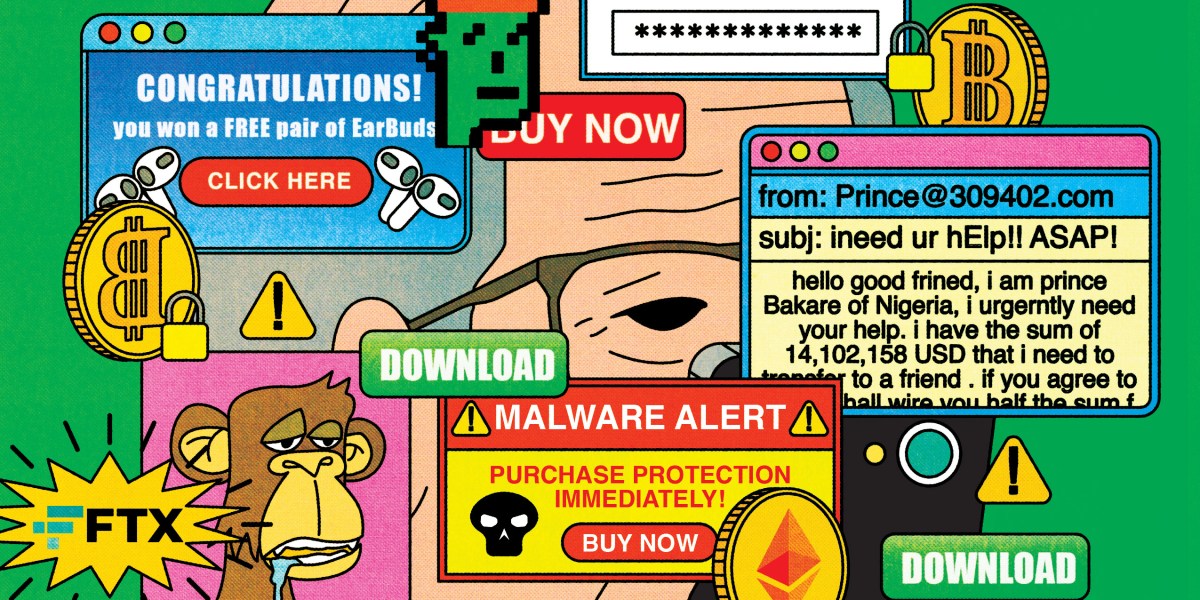How culture drives foul play on the internet and how new “upcode” can protect us
Shapiro’s book arrives just in time for the last gasp of the latest crypto wave, as major players find themselves trapped in the nets of human institutions. In early June, the US Securities and Exchange Commission went after Binance and Coinbase, the two largest cryptocurrency exchanges in the world, a few months after charging the infamous Sam Bankman-Fried, founder of the massive crypto exchange FTX, with fraud. While Shapiro mentions crypto only as the main means of payment in online crime, the industry’s wild ride through finance and culture deserves its own hefty chapter in the narrative of internet fraud.
It may be too early for deep analysis, but we do have first-person perspectives on crypto from actor Ben McKenzie (former star of the teen drama The O.C.) and streetwear designer and influencer Bobby Hundreds, the authors of—respectively—Easy Money and NFTs Are a Scam/NFTs Are the Future. (More heavily reported books on the crypto era from tech reporter Zeke Faux and Big Short author Michael Lewis are in the works.)
“If we are committing serious crimes like fraud, it is crucially important that we find ways to justify our behavior to others, and crucially, to ourselves.”
Ben McKenzie, former star of The O.C.
McKenzie testified at the Senate Banking Committee’s hearing on FTX that he believes the cryptocurrency industry “represents the largest Ponzi scheme in history,” and Easy Money traces his own journey from bored pandemic dabbler to committed crypto critic alongside the industry’s rise and fall. Hundreds also writes a chronological account of his time in crypto—specifically in nonfungible tokens, or NFTs, digital representational objects that he has bought, sold, and “dropped” on his own and through The Hundreds, a “community-based streetwear brand and media company.” For Hundreds, NFTs have value as cultural artifacts, and he’s not convinced that their time should be over (although he acknowledges that between 2019 and the writing of his book, more than $100 million worth of NFTs have been stolen, mostly through phishing scams). “Whether or not NFTs are a scam poses a philosophical question that wanders into moral judgments…


